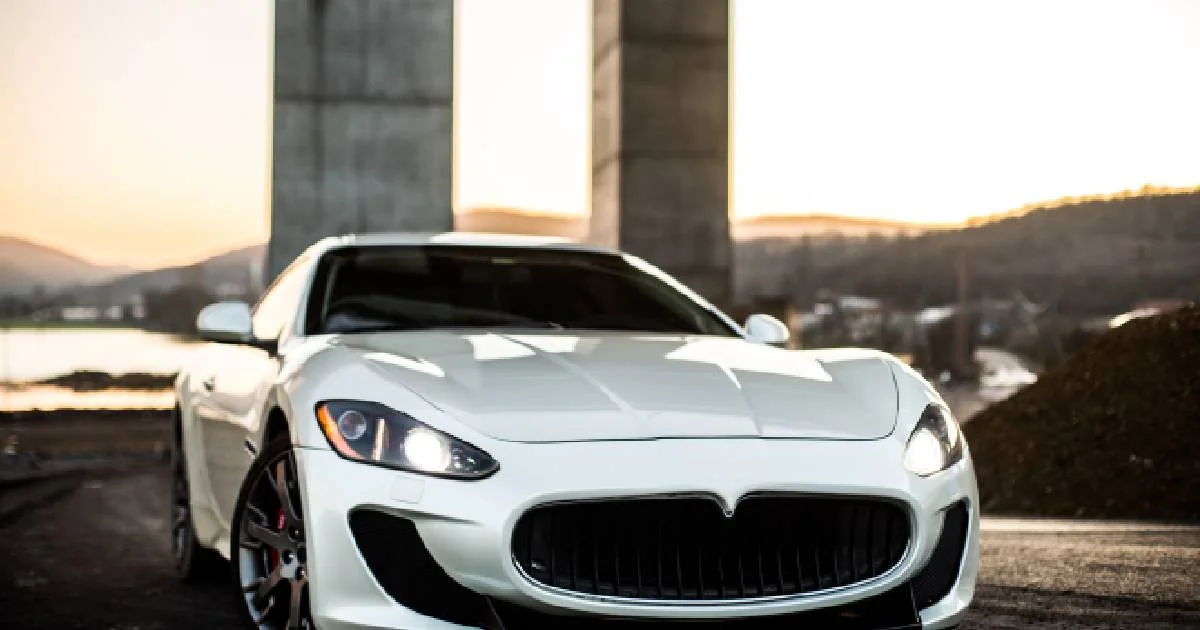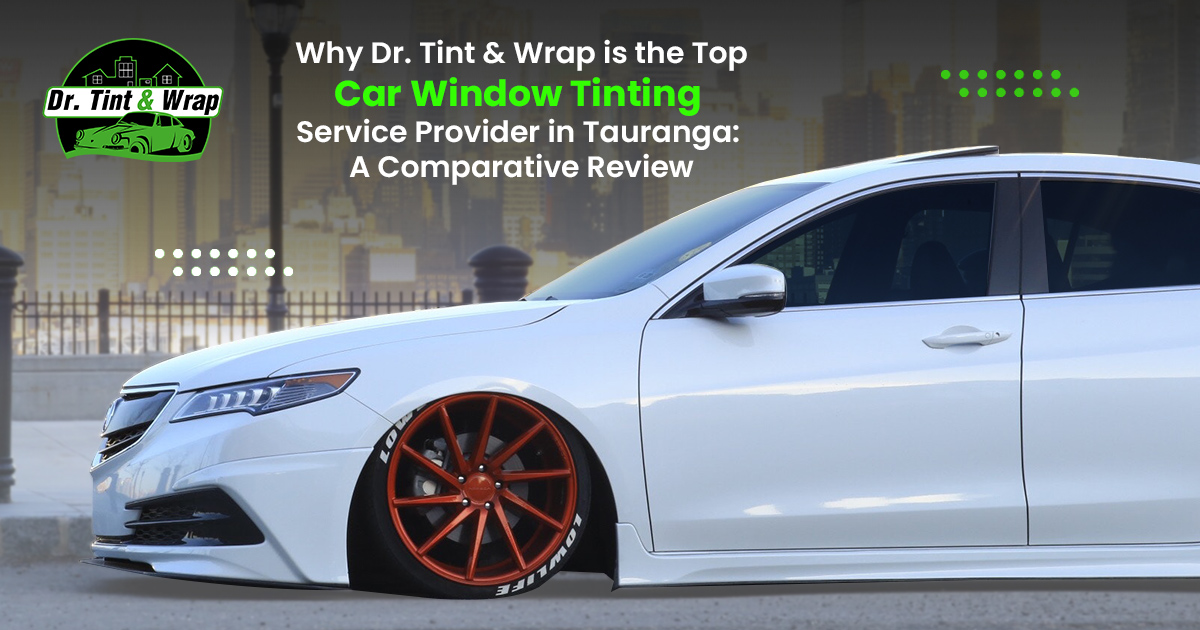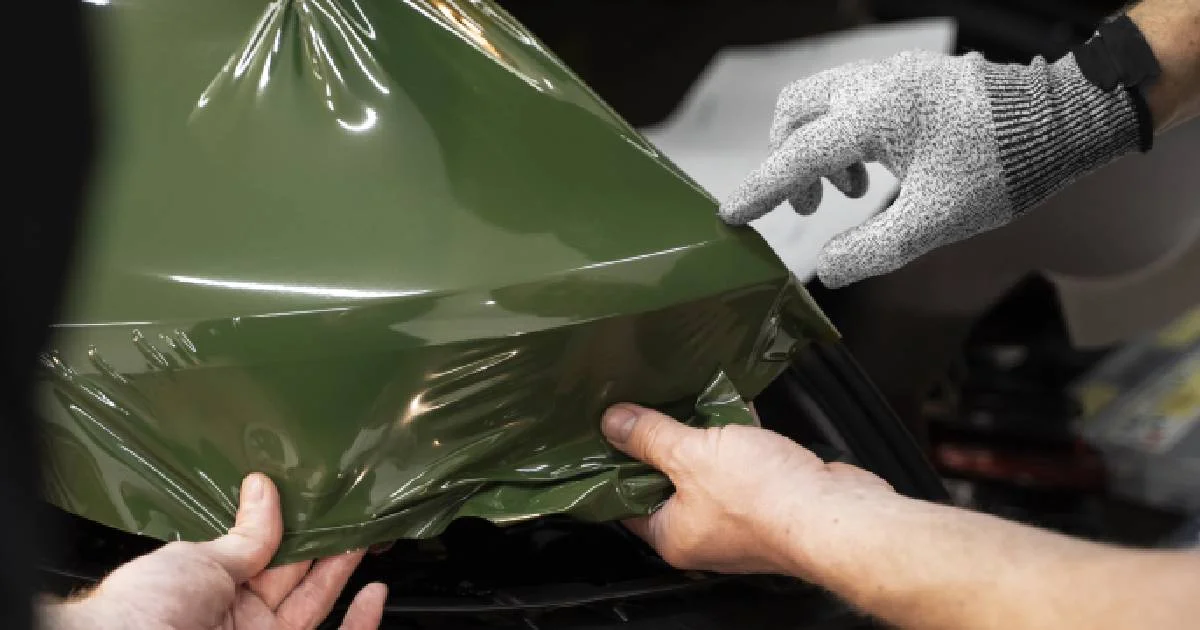
Pros and Cons of Car Wrapping: Is it Worth the Investment?
25 Oct 2023, By AdminIn recent years, car wrapping has become a popular trend among automobile enthusiasts and businesses alike. Whether you want to give your vehicle a fresh, unique look or use it as a marketing tool for your company, car wrapping offers a creative and eye-catching solution. However, like any automotive modification, car wrapping comes with its own set of pros and cons. In this blog, we'll explore the advantages and disadvantages of car wrapping to help you determine if it's worth the investment.
What Are Pros of Car Wrapping
- Aesthetic Appeal: Car wrapping allows you to change the appearance of your vehicle dramatically. With an extensive range of colors, finishes, and textures available, you can achieve a personalized look that suits your style or branding needs.
- Protection: Wrapping your car provides a layer of protection for the original paint. It shields the vehicle from minor scratches, chips, and UV rays. This added layer can help maintain the resale value of your car.
- Temporary Customization: Unlike a paint job, car wrapping is reversible. If you decide you no longer like the design or want to return your car to its original state, you can remove the wrap without any damage to the underlying paint.
- Advertising and Branding: Businesses can use car wrapping as a cost-effective and mobile advertising strategy. Wrapping a company vehicle with a logo, contact information, and eye-catching graphics can increase brand visibility and recognition.
- Versatility: Car wrapping can be applied to various types of vehicles, from compact cars to trucks, and even boats. This makes it a versatile option for both personal and commercial use.
- Fast Turnaround: The process of wrapping a car is generally quicker than a full paint job. This means less downtime for your vehicle, making it an attractive option for those who rely on their cars for daily transportation.
What Are Cons of Car Wrapping
- Cost: While car wrapping is more affordable than a custom paint job, it can still be a significant investment. The price varies depending on the size of your vehicle, the type of material used, and the complexity of the design.
- Durability: Car wraps are not as durable as paint. They can be damaged by rock chips, bird droppings, or harsh weather conditions. In addition, the lifespan of a wrap typically ranges from 3 to 5 years, after which it may begin to show signs of wear and tear.
- Installation Quality: The quality of a car wrap largely depends on the skill of the installer. A poor installation job can result in wrinkles, bubbles, or peeling, which can be unsightly and require costly corrections.
- Limited Repair Options: When a section of your wrap is damaged, repairing it can be challenging, especially if the color or design is no longer available. This might require redoing the entire wrap.
- Resale Value Concerns: While car wrapping can protect your vehicle's paint, some potential buyers may view it as a drawback, as they may be uncertain about the condition of the underlying paint. This could affect the resale value.
- Maintenance: Maintaining a car wrap requires specific care, such as hand washing and avoiding high-pressure car washes. Failure to do so could lead to premature deterioration of the wrap.
In conclusion, car wrapping offers an array of benefits, from aesthetics to advertising opportunities. However, it's essential to weigh these advantages against the potential drawbacks. Car wrapping can be a worthy investment for those looking for a temporary customization option or a unique way to promote their business. Still, it's crucial to choose a reputable installer and carefully consider the long-term implications, including maintenance and resale value concerns. If the pros align with your needs and budget, car wrapping can be an exciting and rewarding choice to transform your vehicle into a work of art or a moving billboard.

Why Dr. Tint & Wrap is the Top Car Window Tinting Service Provider in Tauranga: A Comparative Review
25 Oct 2023, By AdminWhen it comes to car window tinting in Tauranga, finding a reliable and skilled service provider is crucial. Among the various options available, Dr. Tint & Wrap has emerged as the top choice for car owners in the region. This comparative review explores the reasons why Dr. Tint & Wrap stands out from the competition and why it is considered the premier car window tinting service provider in Tauranga.
1. Exceptional Expertise and Experience
With years of experience in the industry, Dr. Tint & Wrap has built a solid reputation for its exceptional expertise in car window tinting. Their team consists of highly skilled professionals who are knowledgeable about the latest tinting techniques, industry trends, and regulations specific to Tauranga. This expertise ensures that customers receive high-quality services and optimal results.
2. Extensive Range of Services
Dr. Tint & Wrap offers a comprehensive range of services beyond window tinting, catering to the diverse needs of car owners. In addition to tinting, they provide services such as vehicle wrapping, paint protection film installation, and headlight restoration. This versatility sets them apart from competitors, providing customers with a one-stop solution for all their car enhancement needs.
3. Quality Materials and Cutting-Edge Technology
To ensure long-lasting and visually appealing results, Dr. Tint & Wrap utilizes only high-quality materials and cutting-edge technology. They partner with reputable suppliers to source top-grade window films that offer superior heat and UV protection, glare reduction, and privacy. The use of advanced tools and techniques during the tinting process guarantees precise and flawless installations.
4. Customization Options
Understanding that every customer has unique preferences, Dr. Tint & Wrap offers customization options to meet individual requirements. They provide a wide selection of tint shades, allowing customers to choose the level of darkness and appearance that suits their style. Additionally, their skilled technicians can provide expert advice and recommendations to help clients make informed decisions.
5. Excellent Customer Service
Dr. Tint & Wrap prioritizes customer satisfaction, evident in their commitment to providing excellent customer service. Their friendly and knowledgeable staff members are dedicated to addressing inquiries, providing accurate information, and ensuring a smooth and pleasant experience for every client. Positive reviews and testimonials from satisfied customers further attest to their exceptional service.
When it comes to car window tinting in Tauranga, Dr. Tint & Wrap stands out as the top service provider. Their combination of expertise, extensive services, quality materials, customization options, and excellent customer service sets them apart from competitors. Car owners can trust Dr. Tint & Wrap to deliver outstanding results and enhance their driving experience through their exceptional car window tinting services. .

The Benefits of Car Window Tinting: UV Protection, Privacy, and Style
25 Oct 2023, By AdminMar owners invest their time and effort in maintaining vehicles. Like from regular oil changes to car washes. However, one essential aspect that often gets overlooked is car window tinting. Car window tinting offers a range of benefits that can enhance your driving experience and protect you, your loved ones and your vehicle. In this blog, we will explore the top three benefits of car window tinting: UV protection, privacy, and style.
UV Protection
We all know harmful UV sunrays not only damage our skin but also fade the interior of our car. Car window tinting acts as a barrier that blocks up to 99% of harmful UV rays, protecting you and your passengers from potential skin damage. This also reduces the risk of skin cancer. Additionally, car window tinting helps prevent the fading and cracking of your car's interior, including the dashboard, seats, and carpets, by blocking the sun's harmful rays. This can help prolong the lifespan of your vehicle's interior and maintain its resale value.
Privacy
Privacy is another significant benefit of car window tinting. It can provide you with a sense of security and peace of mind while driving your car. Tinted windows create a barrier that makes it difficult for outsiders to see inside your vehicle, ensuring your belongings and passengers remain hidden from prying eyes. This can be especially useful when you have valuable items in your car or when you want to protect your privacy, such as when changing clothes, breastfeeding, or having personal conversations.
Styling
Car window tinting can also add a touch of style to your vehicle. Tinted windows give your car a sleek and sophisticated appearance, enhancing its overall aesthetics. With various shades and colors available, you can choose a window tint that complements your car's exterior and reflects your personal style. Custom window tinting options are also available, allowing you to create a unique and customized look for your vehicle.
Bonus Tip
In addition to these three main benefits, car window tinting can also provide other advantages such as reducing glare while driving, improving safety by minimizing shattered glass in case of an accident and providing insulation to keep your vehicle cooler in hot weather, reducing the need for excessive air conditioning and saving on fuel costs. It's essential to note that car window tinting is regulated by laws in jurisdictions, and it's crucial to comply with the legal requirements.
Conclusion
In conclusion, car window tinting offers a range of benefits that go beyond aesthetics. It provides UV protection, privacy, and style to enhance your driving experience and protect you and your vehicle. If you're considering window tinting for your car, make sure to research and choose a reputable and experienced professional like Dr. Tint & Wrap to ensure proper installation and compliance with legal regulations. Enjoy the many advantages of car window tinting and drive in comfort, style, and safety!

Innovations in Car Wrap Technology: What's New in Tauranga?
25 Oct 2023, By AdminIntroduction
In the ever-evolving world of automotive customization, car wrapping has emerged as a revolutionary way to transform the appearance of vehicles. Tauranga, with its vibrant automotive culture, has witnessed a surge in the popularity of car wrapping. This trend isn't just about changing colors; it's about embracing cutting-edge technologies that redefine what's possible in the realm of vehicle aesthetics.
The Art and Science of Car Wrapping in Tauranga
Car wrapping is an art form that blends creativity with precision. Traditional vinyl wraps have been used for years, allowing car enthusiasts to change the color and finish of their vehicles. However, recent innovations have taken car wrapping to a whole new level in Tauranga.
The materials used in car wrapping have undergone significant advancements. High-quality vinyl films are now more durable, weather-resistant, and versatile than ever before. Tauranga's climate demands robust materials that can withstand both the scorching sun and the occasional rain, making these new vinyl films ideal for the region.
Imagine a car that changes color as it cruises through the streets of Tauranga – enter color-shift technology. This innovative feature allows the vehicle's hue to transform depending on the viewing angle and lighting conditions. Car wrapping in Tauranga has become a dynamic spectacle, with colors shifting from iridescent blues to mesmerizing purples, capturing the attention of onlookers.
Beyond just color, modern car wraps can now incorporate three-dimensional textures and effects. From carbon fiber patterns to metallic finishes, Tauranga's car enthusiasts can add a touch of luxury and sophistication to their vehicles. These textures not only look visually stunning but also provide a tactile experience, enhancing the overall appeal of the wrapped car.
Digital printing technology has enabled unparalleled levels of customization. Car wrapping in Tauranga now allows for intricate designs, intricate patterns, and even personalized graphics. Whether it's showcasing a brand logo or expressing individual style, digital printing brings a new dimension to the world of car aesthetics.
- Next-Gen Materials:
- Color-Shift Technology:
- 3D Textures and Effects:
- Digital Printing for Personalization:
What is car wrapping, and how does it differ from traditional paint jobs?
Car wrapping is a process where a vehicle's original paint is covered with a vinyl wrap. This technique provides a protective layer and allows for various designs. Unlike traditional paint jobs, car wrapping is temporary, and the original paint remains intact.
What are the latest innovations in car wrap technology in Tauranga?
Tauranga has witnessed advancements in car wrap technology, with the introduction of new materials such as color-shifting and textured vinyl wraps. These materials offer unique visual effects and textures, allowing for personalized and eye-catching designs.
How do color-shifting wraps work, and what makes them popular in Tauranga?
Color-shifting wraps use special pigments that change color depending on the viewing angle and lighting conditions. Tauranga car enthusiasts are drawn to these wraps for their ability to create a dynamic and captivating appearance, making vehicles stand out in any setting.
Are there eco-friendly options in car wrapping technology available in Tauranga?
Yes, eco-friendly car wrap options have gained popularity in Tauranga. Some wraps use sustainable materials, and the application process produces fewer emissions compared to traditional painting methods, aligning with the city's commitment to environmental sustainability.
Are there advancements in the durability of car wraps in Tauranga's climate?
Yes, Tauranga's unique climate considerations have led to the development of car wraps with enhanced durability. These wraps are designed to withstand the region's exposure to sunlight, humidity, and salt air, ensuring a longer lifespan and vibrant appearance.
How has technology impacted the design possibilities for car wraps in Tauranga?
Technological advancements have expanded design possibilities significantly. Tauranga's car wrapping industry now employs computer-aided design (CAD) software and digital printing technologies, allowing for intricate and detailed custom designs, logos, and patterns.
Conclusion
In Tauranga, the world of car wrapping is experiencing a renaissance, where technology meets creativity on the open road. The innovations in car wrap technology discussed above represent just the tip of the iceberg. As the city continues to embrace individuality and expression, one can only anticipate more groundbreaking developments in the ever-evolving world of car wraps. So, the next time you find yourself on the streets of Tauranga, keep an eye out for these marvels of innovation – the cars that wear their personalities on the outside for all to see.
